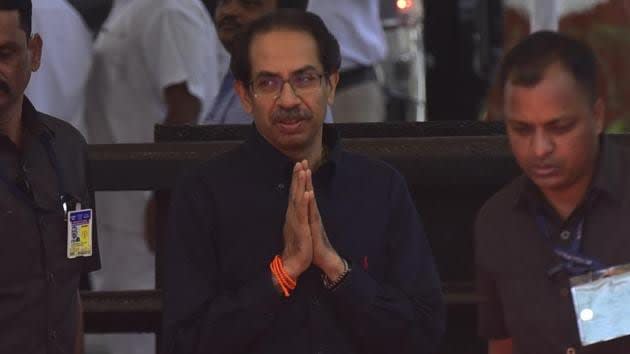
The Maharashtra Vikas Aghadi (MVA) government, a coalition of the Shiv Sena, Nationalist Congress Party (NCP) and Congress, will complete 100 days in office on March 6. The three parties coming together to form the government was unexpected in Maharashtra politics. It led to several firsts and a few surprising aspects in state politics. Here are the prominent ones:
Shiv Sena-Congress alliance: This was the most unexpected aspect of the entire government formation spectacle that was witnessed in October-November last year. The Congress, which was a strong critic of the Shiv Sena, agreed to support a Sena-led government to keep the BJP out of power in a crucial state like Maharashtra. Though the Congress leadership was not willing to be part of the government, it later agreed. Several senior leaders of the party were also wary of the party legislators, who had threatened to turn rebels (if the party did not support the coalition) and advised the leadership to join the coalition that included a former ally and an ideologically opposite party. Three months later, the unease between the Sena and the Congress continues. Thackeray has refused to be part of the UPA and has also chosen to continue with his Hindutva. His stand on Citizenship Amendment Act (CAA) and National Population Register (NPR) has irked the Congress.
Pawar-Thackeray equations: Even as the Fadnavis-led BJP tried to end his influence on Maharashtra politics, NCP chief Sharad Pawar fought back and grabbed the opportunity to form a non-BJP government in Maharashtra as the BJP and Sena differed over the issue of chief ministership. Pawar was the architect behind the MVA government. It was he who convinced Thackeray to walk out of the NDA, persuaded the Congress leadership to come on board and ensured the government is headed by Uddhav Thackeray. Even after its formation, Pawar has been monitoring its functioning and recently even intervened to avoid any trouble within the coalition after Thackeray visited New Delhi and spoke in favour of the CAA and NPR. Unlike his father, Uddhav Thackeray never shared cordial relations with Pawar, but things have changed now. The bonhomie between the two leaders is quite visible. Within the MVA they say the coalition will remain intact as long as Pawar and Thackeray get along well.
Uddhav Thackeray as chief minister: Even when the moves to form a Sena-led government were afoot, most in political circles thought Thackeray would pick someone from the party for the chief minister's post, especially since it was a coalition government propped by the Congress and NCP. Surprisingly, he decided to take up the top job. The first 100 days of his chief ministership are not disappointing for the MVA. He has shown patience in handling the allies. The ministers in his cabinet as well as the bureaucrats are happy with his style of functioning. Although he gives freedom to his colleagues in handling their departments, he remains firm on decisions that he takes. So far he has rarely taken any wrong step. But then, 100 days is a short period. His leadership skills would be put to test in the next few months as the Centre starts putting pressure on the states for NPR implementation. He will also have to deliver on the promises. It won't be an easy task considering limited resources of the state, revenue shortfall due to current economic conditions and a non-cooperative Centre. Then there is always an air of uncertainty how long the government would last.
Fadnavis and BJP: While some of its leaders were speaking about Karnataka's Operation Kamal-like poaching operation, the state BJP has decided to wait and watch. Devendra Fadnavis who has quickly adapted to his new role as Opposition leader, has chosen not to take any hasty steps to try and pull down the government and has asked his party colleagues to play the role of an effective opposition. His close aides say Fadnavis as well as party's top leadership believe that the MVA government will fall due to its internal differences and it is better to wait instead of approaching the dissident MLAs now. As long as the state leadership of the BJP is concerned, there seems to be no challenge to Fadnavis.
Ajit Pawar factor: One person who would be keenly watched by both the sides— the MVA as well as the BJP— is deputy chief minister Ajit Pawar. After his short-lived rebellion, Ajit has regained his position as number two in the party and now also in the government.
He is cautious and avoiding any controversy, but there will always be curiosity about his political moves. Will he spring a surprise again? Many in the ruling coalition must be checking their phones every morning to ensure that there is no surprise in store for them.